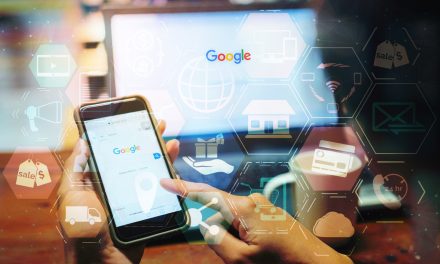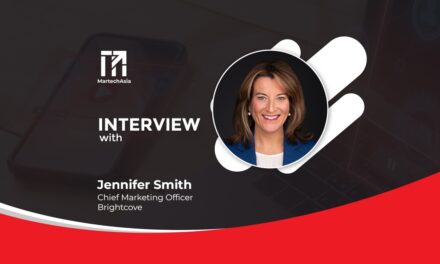In the business-to-business (B2B) world, companies can harness AI power to boost their marketing efforts. Here’s how…
As you already know, artificial intelligence (AI) simulates human intelligence in computer programs to perform tasks that typically require human intelligence. This broad field of study encompasses machine learning, natural language processing (NLP), computer vision, robotics, and other subfields.
Your B2B company should invest in a robust AI system designed to perceive its environment, reason about the information it gathers, and make decisions or take actions to achieve your specific goals. With a reliable AI system, you can improve your B2B marketing performance over time.
But before you check available AI solutions in the market, it’s important to determine the role of AI in B2B marketing, which I will discuss further in this article. The role of AI in B2B marketing is multi-faceted, as shown in the various marketing applications below.

Data analysis and segmentation
Your B2B company manages sizeable data assets, awaiting AI analysis and segmentation to awaken the sleeping dragon – your next B2B marketing campaign. AI helps segment B2B audiences based on various criteria, such as industry, company size, or behavior, enabling marketers to deliver personalized and targeted messages to specific segments.
Don’t let your digital assets rot in your B2B storage system. Instead, use them to your marketing advantage with the help of AI. With an AI-driven system, you can collect and aggregate data from various sources, such as customer interactions, website behavior, CRM (Customer Relationship Management) systems, social media platforms, and third-party data providers. As a result, you can delineate data relevant to your next marketing campaign.
In addition, AI algorithms can analyze the characteristics of each segment, providing insights into their unique attributes, preferences, and behaviors. You can validate the identified segments by comparing them with existing customer knowledge and conducting further analysis or experimentation to reach your B2B marketing goals.
Lead generation and qualification
Generating and qualifying B2B leads involves a holistic, collaborative effort of sales and marketing teams. These tasks were time-consuming before the emergence of automation and AI. Today, lead generation and qualification have become more dynamic, accurate, and faster.
A robust AI-powered tool can automate lead generation by identifying potential prospects based on predefined criteria. It can crawl websites, social media platforms, industry directories, and other sources to find companies or individuals that match your target audience profile.
You can use AI algorithms to score and rank B2B leads based on factors such as their fit with the ideal customer profile (ICP), engagement level, past interactions, and demographic information. That way, you can prioritize your leads and focus marketing efforts on those with the highest likelihood of conversion.
Furthermore, AI can analyze B2B prospect behavior across different channels to understand their intent and level of interest. By tracking website interactions, content consumption, email engagement, and social media activities, your sales and marketing teams can detect signals of purchase intent and identify warm leads.
For instance, AI can help generate accurate information on the traffic you receive from Facebook, LinkedIn, Instagram, and other social media networks. It can show you the number of successful clicks from your paid ads and banner ad displays, reflecting your demand generation efforts.
Content personalization and recommendation
Personalization is a critical factor in B2B marketing, wherein B2B prospects and customers must feel they are highly valued to win their trust. AI can analyze customer data to understand individual preferences and deliver personalized content recommendations. By leveraging AI, B2B marketers can provide relevant and tailored content experiences, increasing engagement and conversion rates.
For example, you can use a robust AI tool to determine a prospect’s preferred communication channel and time. AI can detect the specific times or days of the week a prospect opens its email messages, giving you an idea of the best time to send an email blast.
Chatbots and conversational marketing
AI-powered B2B chatbots can nurture leads, provide customer service support, answer FAQs, and provide valuable insights about your solutions to prospective clients. AI systems can analyze content, such as articles, videos, or products, and automatically generate relevant tags or metadata. These tags enable the AI algorithms to match user preferences with the most relevant content items.
AI algorithms use user data and content analysis to generate personalized recommendations for each user. These recommendations can be displayed on your website, emails, or other marketing channels. Moreover, AI algorithms can help optimize content personalization strategies by conducting A/B tests to measure the performance of different content variations.
Your AI-powered chatbot and a virtual assistant can engage in real-time conversations with your visitors, understanding their queries and preferences. These interactive AI systems enhance the user experience by delivering tailored information and assistance.
Predictive analytics
You’re probably employing predictive analytics in your B2B organization, especially in sales forecasting. AI algorithms can analyze historical data and predict future outcomes, such as customer behavior, demand patterns, or campaign performance. This enables you to make data-driven decisions, optimize your marketing strategies, and allocate your resources effectively.
AI-powered predictive analytics can help you segment customers based on various attributes and behaviors, tailoring your marketing efforts and product offerings to specific customer groups. This enables more personalized and effective B2B marketing strategies.
By analyzing historical sales data, market trends, and other relevant factors, AI can predict future demand for your products or services. That way, you can optimize their inventory levels, reduce stockouts, and improve supply chain efficiency.
In addition, AI algorithms can be trained to identify patterns indicative of potential risks or fraudulent activities in B2B transactions. By analyzing enormous amounts of data in real time, AI can help businesses detect and mitigate risks, reducing losses and enhancing security.
Marketing automation and campaign optimization
AI-driven marketing automation platforms can automate various marketing tasks, including email campaigns, gamification, social media posting, and ad optimization. AI algorithms can analyze campaign performance in real time and make data-driven recommendations for improving targeting, messaging, and overall campaign effectiveness.
Your B2B company can use AI to create gamification campaigns targeting a specific group of audience. For instance, you can create a video gamification quiz about your cloud security solution to attract IT administrators and other tech decision-makers.
Your B2B company can embrace AI to reap its promising marketing benefits. AI empowers your B2B marketers with advanced data analysis, automation, personalization, and predictive capabilities, enabling them to optimize their strategies, deliver relevant experiences, and achieve better results in their marketing efforts.



















